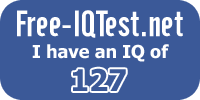 Over the last few years, a new and disturbing phenomenon has been increasing in frequency. It’s called Internet Addiction Disorder (IAD), and it has been the subject of new research and debate. It is not currently included in the Diagnostic and Statistical Manual of Mental Disorders (DSM), but many argue that addictions to the web and to Internet-based video games like World of Warcraft does indeed exist.
Over the last few years, a new and disturbing phenomenon has been increasing in frequency. It’s called Internet Addiction Disorder (IAD), and it has been the subject of new research and debate. It is not currently included in the Diagnostic and Statistical Manual of Mental Disorders (DSM), but many argue that addictions to the web and to Internet-based video games like World of Warcraft does indeed exist.
The debate is now back in focus after the Heavensfield Retreat Center announced that it has opened what appears to be the first addiction recovery program for Internet Addiction Disorder in the U.S. Called reSTART, the 45-day program is designed to take serious sufferers of IAD and bring balance to their lives. It already has its first patient, a 19 year old who could not remove himself from World of Warcraft.
The Program
reSTART is a 45-day treatment program out of Fall City, Washington (near Seattle) that takes 2-6 people at a time and essentially cuts them off from the web and works with them to “reprogram” their social skills. It includes work with a recreation coach, a therapist, exercise and yoga instructors, and more. Their website actually provides a detailed sample schedule, which includes exercise, nature hikes, “discovery quests,” career development, therapy, and more.
To qualify for admittance to reSTART, you have to display symptoms of its nine guidelines for IAD. They are as follows:
1. Have a strong desire or impulse to use the internet.
2. Decreasing or stopping of the internet leads to withdrawal symptoms (e.g., general malaise, restlessness, irritability, lack of concentration, dyssomnia); and the above mentioned symptoms may be relieved by similar electronic media (e.g., TV, handheld games, gaming devices).
3. Continually increasing the amount of internet use and the extent of internet involvement to reach sense of satisfaction.
4. Use of internet in spite of its harmful effects; despite knowledge of harmful effects, internet use is hard to stop.
5. Difficulties controlling beginning, and finishing, and the duration of time of internet use; efforts to modify internet use may be attempted multiple times without success.
6. As a result of internet use, interests, recreation or social activities are decreased or abandoned.
7. Internet use is seen as a way to escape problems or to gain relief from negative feelings.
8. The extent of internet use is denied or minimized to teachers, schoolmates, friends or professionals (including actual time and expenditure of internet contact).
9. Everyday life and social function is impaired (e.g., in social, academic and workability.)
For more on Internet Addition Disorder and the debate surrounding it, be sure to read the Wikipedia article on the subject.
Of course, this program is not free. For 45 days, the price is a hefty $14,500. Rehabilitation programs have never been cheap, though, so this price does not particularly shock us.
What Are We to Think of These Programs?
It’s getting tougher and tougher to argue that there is no such thing as Internet Addiction Disorder, especially if you watched the CNN video above. The sad truth is that it’s possible to become addicted to just about anything, and that the web (and World of Warcraft) has sucked many people in so deep that they ignore social interactions and forget real-world obligations.
Does a rehab center for extreme cases make sense? Yes, especially if reSTART can provide scientific proof of success in breaking the addictions of its patients. Still, rehab doesn’t work for all drug addicts, and it probably won’t work for all Internet addicts. And unlike drug addiction, you can’t simply avoid and abstain from using the web; it’s too central to our economy, our work, our education, and our lives to be ignored.
This debate isn’t going away anytime soon, and most likely, neither is reSTART. We want your opinions in the comments below. Do you think IAD is real? Do you think reSTART is a good idea? Is it possible to “recover” from something as central to our lives as the Internet? Please chime in on the discussion.

0 comments:
Post a Comment